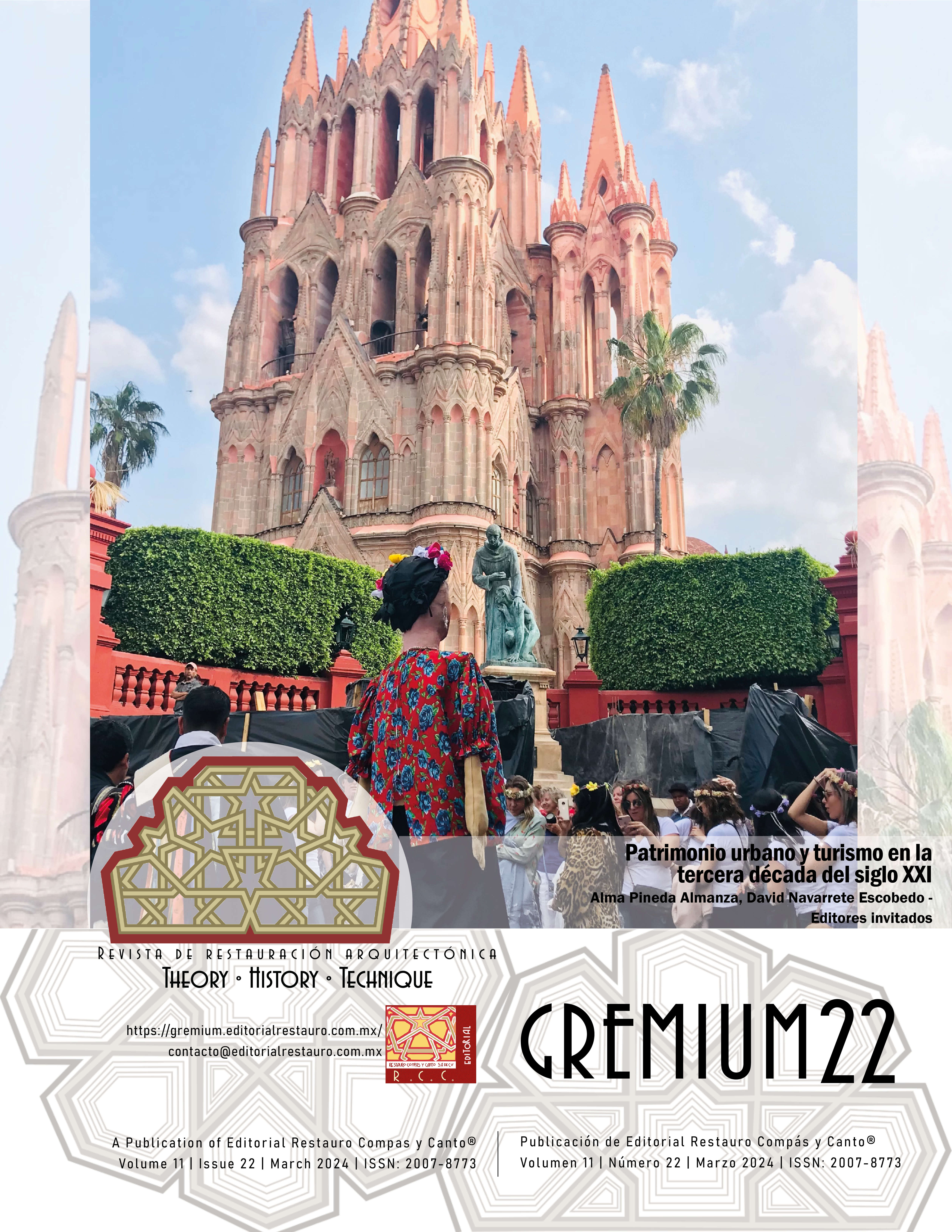Review: Airbnb against the city. Reflections on Tourist Housing in Heritage Areas
DOI:
https://doi.org/10.56039/rgn22a12Keywords:
tourism, heritage, housingAbstract
Airbnb is a private-to-private property rental business model boomed in cities with high tourist and residential
demand. It has been installed in a growing number of historic metropolitan centers, medium-sized cities and
towns in Mexico and the rest of the world. At the international level, the multiplication of tourist housing presents
a constant: it aims particularly at heritage neighborhoods with housing and public spaces of great architectural,
historical, contextual, scenic and/or esthetic value. These neighborhoods are attractive to tourists because they
are “living” neighborhoods, i.e. still inhabited by the local middle or working classes that give the site its full
use and heritage value. However, the profitability offered by Airbnb drives the massive long-term rental housing
exit from market (with its respective loss of local inhabitants) to incorporate them into tourist rentals (floating
populations of short-stay visitors). Likewise, real estate speculation appears when selling properties brokers and
owners inflate prices under the argument of selling a business. Airbnb has turned against the city, or at least
against its primary function: a place to live.
Downloads
References
avarrete, David y Pineda, Alma (2022). Airbnb contra la ciudad. Reflexiones sobre la vivienda turística en zonas patrimoniales. Editorial Madorla, Santiago de Querétaro, ISBN: 978-607-99592-0-3
Published
Issue
Section
License

This work is licensed under a Creative Commons Attribution-NonCommercial-NoDerivatives 4.0 International License.























